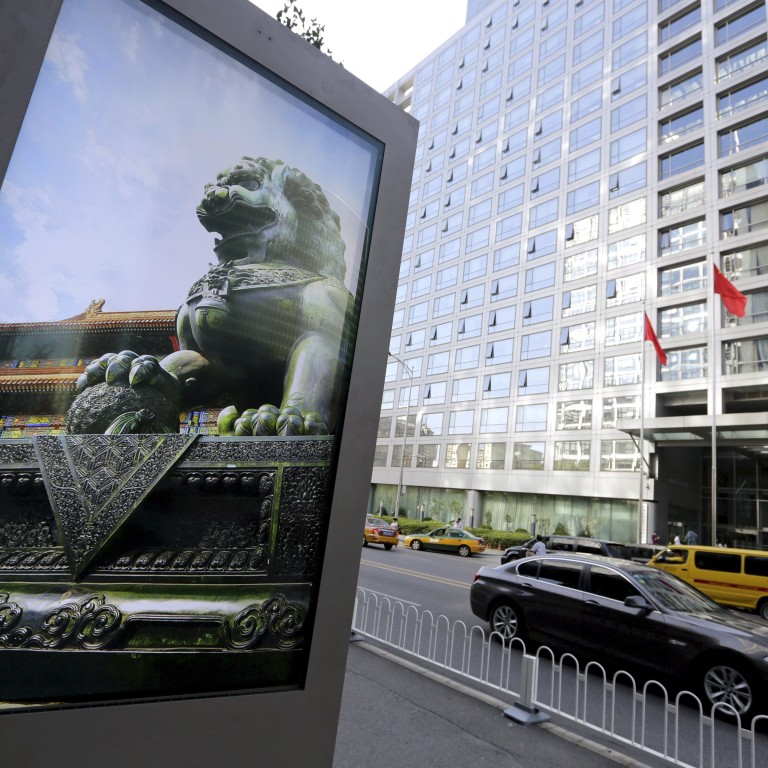
Chinese police investigating early April Fools’ Day social media financial rumour
- People’s Bank of China asks police authority to look into speculation it was planning to cut the required reserve ratio last week
- The rumour spread on Chinese social media networks including WeChat and Weibo on Friday before being denied by China’s central bank
Chinese police are investigating an unsubstantiated social media rumour concerning monetary policy easing at the request of the central bank, reflecting Beijing’s resolve to battle fake financial news at a time when the government is increasingly sensitive in managing market expectations.
The rumour, which spread on Chinese social media including WeChat and Weibo on Friday, claimed that the People’s Bank of China (PBOC) would cut the required reserve ratio the following Monday. The PBOC denied the rumour on Friday night via its official Weibo channel.
A cut in required reserve ratio, the amount of money that banks must hold in reserve at the central bank, would release financing from the central bank into the banking system, and is often seen as a boost for stock prices. It is one of the most important policy moves a central bank can make.
The Financial News, a newspaper published by the central bank, reported on Tuesday that the PBOC sent a letter to China’s police authority requesting an investigation into the act of “forging and spreading false information”.

A commentary in the newspaper warned Chinese media outlets, and “in particular social media accounts”, not to spread fake news. The commentary was also posted on the central bank’s own social media account.
It is not the first time that China’s police authority has been asked to step in to deal with financial gossips. Wang Xiaolu, a journalist working for Caijing magazine, was detained in August 2015 on charges of forging and spreading fake news regarding the government’s stock market rescue plan. Wang confessed on China’s state television before he was convicted.
However, police involvement in battling fake news is still relatively rare in China. The China Securities Regulatory Commission (CSRC), the stock market watchdog, has looked into 17 cases relating to fake news and has imposed “administrative” punishments in 13 cases. However, only two cases were handed over to police authority. The CSRC imposed fines of 200,000 yuan (US$29,800) and 400,000 yuan on two members of the public in February 2018 for “forging and spreading fake news”.
China’s central bank, whose policy moves can greatly influence stocks, bonds and commodity prices, are relatively toothless in fighting against fake news as it does not have the capacity to directly investigate or punish individuals.
The central government is becoming increasingly intolerant to market swings and disharmonious voices when overall sentiment is fragile about the country’s growth prospects amid the trade war with the United States. China’s internet censors have been working ruthlessly to delete any economic or financial narrative that is not in line with Beijing’s official stance.

The PBOC has enhanced its efforts to communicate with the markets over the past year, including releasing of more financial data and the revamping of its English-language website.
In a working paper co-authored by International Monetary Fund chief China representative Alfred Schipke in November, the PBOC was encouraged to do more to boost transparency and to start from “low-hanging fruit” such as timely release of data and regular release of its own economic forecasts.
“There’s still great uncertainty over the direction of policy. If the People's Bank has regular schedule of policy meetings, we would know that instead of constant speculation,” said Julian Evans-Pritchard, a senior China economist of Capital Economics.

